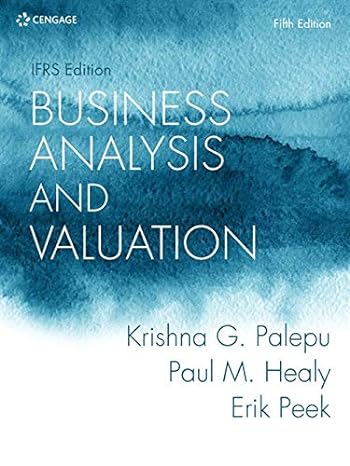In the aftermath of the dot-com crash, many tried to pinpoint whose fault it was that the
Question:
In the aftermath of the dot-com crash, many tried to pinpoint whose fault it was that the whole bubble occurred in the first place. As mentioned previously, sell-side analysts, often the most visible group in the investment community, came under frequent attack in the media, as did, to some extent, venture capitalists, investment bankers, and even the accounting industry. Company insiders (including the founder of Scient) were also scrutinized for selling large blocks of shares when the stock prices of their companies were near their peaks.37 A Wall Street Journal article entitled, “Investors, Entrepreneurs All Play the Blame Game,” described how these various players were trying to blame each other for what happened:
With the tech-heavy Nasdaq Composite Index dancing close to the 2,000 mark – down from over 5,000 – internet entrepreneurs and venture capitalists have stepped up their finger-pointing about just who’s at fault for the technology meltdown, which continues to topple businesses and once-cushy lifestyles. . . . Fingers pointed right and left – from entrepreneurs to venture capitalists, from analysts to day traders to shareholders – and back around again.38 The internet stock market bubble was certainly not the first one to occur. Other notables include the Tulip Craze of the seventeenth century and the Nifty Fifty boom of the 1970s. In all cases market valuations went to unsustainably high levels and ended with a sharp decrease in valuation that left many investors empty-handed.
But the question of what happened in this latest bubble remained: who, if anyone, could be blamed for the dot-com rise and crash? How did the various intermediaries described here affect or cause what happened? Was there really a misalignment of incentives in the system? If so, could it be fixed so that this sort of thing did not happen in the future? Or were market bubbles an inevitable part of the way the economy functioned?
Questions
1 What is the intended role of each of the institutions and intermediaries discussed in the case for the effective functioning of capital markets?
2 Are their incentives aligned properly with their intended role? Whose incentives are most misaligned?
3 Who, if anyone, was primarily responsible for the internet stock bubble?
4 What are the costs of such a stock market bubble? As a future business professional, what lessons do you draw from the bubble?
Step by Step Answer:

Business Analysis And Valuation
ISBN: 978-1473758421
5th Edition
Authors: Erik Peek, Paul Healy, Krishna Palepu




